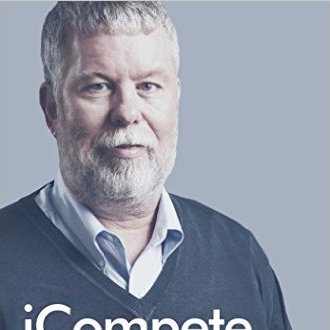
By John T. Hewitt, CEO and Founder of Liberty Tax Service
When it comes to communication, no one gets it right. It’s an essential part of every relationship, whether it’s a marriage, a partnership, a business, or an employer and employee. I don’t care if you have a Ph.D. in communications; I’ve never met a person who consistently listens or gets their message across. Even if you’re close and you try, things are taken out of context or misheard or misstated. Communication is something that no company and probably no couple have ever mastered.
Here’s the problem: human beings are communication stoppers. Every person I know wants to receive communication – they want to know everything – but they don’t give communication back. Information is power and people will hoard it. Whether or not it’s going to the trouble to say something or simply remembering to communicate at all, our desire to get information is greater than our desire to give it. There is no solution to our constant communication dilemma, but we can work at improving every day.
As an entrepreneur, you can never make assumptions. If you are not in direct contact with your customers on a daily basis, you have to communicate with the person who is. Successful business owners must listen to their employees. Those in authority need to pay attention to the troops on the ground.
Our Chief Marketing Officer, Martha O’Gorman, and I once flew to Kansas City to interview a person for the CFO position. Martha asked, “What is your management philosophy?” He replied, “Ours is not to reason why, but to do or die.” In his world, all orders come from above and you are not supposed to question them. Just do it, like a good soldier. That is how many companies run. Many CEOs issue edicts and say, “this is what we’re going to do,” instead of listening to the people who deal with the customer because they think they know best. It’s partly because they feel if they admit that they don’t know best, then they look inferior or won’t be perceived as a good CEO, so they just don’t listen.
I’m secure enough in my leadership to listen to employees. They are the boots on the ground and they know what the customer really wants. Whether it’s a higher level of service, kid-friendly offices, or refreshments, I listen. For example, we print out a letter that we give to every customer with their tax return. Why would I think I could do that better than the person who gives it out thousands of times? They give out two million letters with tax returns. Why would a CEO think he could create a better letter than the people who are closest to the customer? They should design the letter; we should just implement it. There are hundreds of issues like this.
In my company, I know the big picture better than anyone, but my franchisees and employees know the tools they need to exceed customer expectations. A good CEO will trust employees to make the right decisions – empowering them instead of just issuing automatic edits that they must follow. To succeed, employees must feel free to make suggestions and give advice to their managers without concern for retribution. Remember, humans are communication stoppers. The managers who listen the most – and listen well – to their employees will win.
While I still believe that no one really masters communication, we work to improve every day and set the standard. I regularly teach the importance of improving every day in the way we communicate to our customers, to our employees, and to our owners. Customers come first – always. Words aren’t the only communication that a client notices. An employee’s attitude, tone of voice, facial expressions and gestures are all part of the message, leading to either positive or negative results. At Liberty, an important part of our system is to call each client within 24-48 hours of completing a return. We ask for feedback on our service and they can offer any suggestions to help us improve. Most importantly, we listen.
Excerpted from:
iCompete: How My Extraordinary Strategy for Winning Can Be Yours, by John T. Hewitt, CEO and founder of Liberty Tax Service, available on Amazon March 29, 2016




